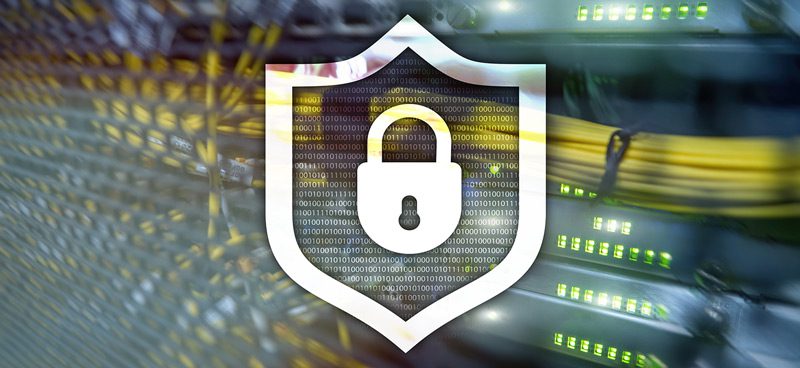Traditional security measures can no longer keep up with the threats of modern days; therefore, the need for next-generation solutions that can provide advanced application-level security is becoming increasingly important. Even though firewalls have become such a common solution for combating security threats, many companies are still struggling to manage and use firewalls at their full potential properly.
While many companies have already accepted the need for protection provided by the next generation of firewalls, some find it hard to decide whether they should buy, install, and manage their own network protection or turn to an expert that can manage the system on their behalf.
Since applications and data security are a must for all companies, deciding whether you should go for a managed solution or not comes down to a few key components. Choosing between a managed firewall or an unmanaged solution usually comes down to a few questions. Here is what you need to know when considering your management options.

Internal Resources
For many organizations, it all comes down to whether they have the internal resources to sustain an unmanaged solution. Do you have the skills, time, or staff that can take over the management of your firewall or not? If your company has a security expert, it makes sense to manage the firewall, but consider their availability. Firewall solutions require 24/7 support, and a staff member who is only available from 9 to 5 might not be enough to ensure proper management for your firewall solution.
In that case, you might be better off opting for a firewall solution managed by a third party. The obvious benefits come from the fact that managed solutions come with 24/7/365 support and a skilled team that is just a call away. With this approach, you also mitigate risk since you transfer all the responsibility to a provider who deals with next-generation firewalls daily.
Efficiency
Many troubles and security concerns can be avoided if an expert handles the management of the firewall. From ongoing monitoring, upgrades, and patches to reporting benefits from economies of scale, the firewall management provider can address all these issues and provide customers with feedback on the security state of the company. With a third party managing your firewall, you become more efficient in delivering your products and focusing on the company’s mission. Now that the organization’s firewalls are entrusted to experts, you can free up your staff and have them focus on customers.
By outsourcing, you can now focus on your core business and know that your firewall is secure at the same time. A managed solution brings significant efficiency gains if your existing firewall doesn’t efficiently cover all business-critical data, upgrades, and monitoring. That is why from an efficiency standpoint, it is best to go for a managed firewall solution.
Performance
It is more likely that your performance efficiencies will go up with a managed service proposition. Typically the provider will be able to negotiate a better deal with the vendor because of the increased volumes taken. Managing all the firewall changes can be one of the most significant issues faced by many businesses. As with most things in IT, there is no simple solution for managing shifts, especially for firewalls. If your company lacks formal policies, doesn’t understand the network complexity, or misinterprets the business risks associated with loose security processes, you are better off considering a managing firewall provider.
If you want a solid firewall solution that performs efficiently, you need to consider the external factors that impact its performance. Having a team of experts taking care of your firewall security, you have already won half of the battle because you have a more secure network environment and fewer responsibilities. With managed firewalls, you can expect the best procedures and policies along with technical control for enforcement and oversight.
Cost and Control
The cost and control aspects of managed and unmanaged services are in a direct relationship. If an enterprise focuses on keeping costs down, then managed services will work better since you don’t have to allocate costs and other internal resources for training your personnel. However, if your business needs to have high levels of hands-on control, it might be better to manage the firewall yourself.
In an environment where data security is paramount, and the cyber-threats can cause irreversible damage that results in high revenue losses, you are better off opting for maximizing control even though these solutions might prove to be more costly. Managed systems that offer less control but at a better cost are still effective at delivering a secure environment. Still, some companies might want to have more control over the firewall.

Firewall Management: Challenges Faced by Companies
In today’s world of information-driven businesses, many things can go wrong, especially when it comes to firewalls, firewall management, and network security. The network is so complex nowadays that a single misstep on a critical firewall can lead to a network outage and expose you to cyber attacks. Improperly managed firewalls create the most significant risks for organizations, and some of the common mistakes made are:
- Outdated firewall rules that leave room for cyber-attacks and unauthorized access
- Non-compliant industry and government regulations in terms of cybersecurity
- Improper firewall rule changes that lead to breaking business applications
If you add the network complexity in the mix, along with other duties you and your team are responsible for, it becomes increasingly clear that firewall management is a business challenge that needs to be addressed properly. Here are some of the major challenges faced by companies.
Assessing the risk of firewall policy
The lack of proper understanding of exactly what the firewall is doing is often the leading cause of firewall policy risks. Even if applications are working and traffic is flowing, there is a high chance that you are getting unnecessary exposure. Everything you and your team change regarding firewall policies can either move your network towards better security or increased risks. To avoid situations like this, your best approach is to ensure that you and your company understand what’s at stake and use innovative firewall architectures to your advantage.
Managing firewall changes
With an IT infrastructure where things are constantly in a state of flux, managing all the changes can be a big challenge for many businesses. Not correctly managing changes can lead to serious business risks such as legitimate traffic being blocked, networks going offline, or companies being hacked. To properly manage firewall changes, you need to use a good set of tools in the right ways. From well-documented procedures and policies along with technical control, you can overcome the challenge of firewall changes.
Keeping up with rules and regulations
Many businesses admit that they are faced with the challenges of keeping up with various compliance regulations, business partners, and internal policy requirements. If you look at the security regulations such as GLBA, HIPAA, and PCI-DSS, the essence is to ensure the confidentiality and integrity of sensitive information. Given the complexity of information security regulations and policies, businesses can’t afford to ignore what’s required and what’s at stake.
Conclusion
Deciding between managing your next-generation firewall internally or hanging it over to an expert is relatively simple if you understand its importance and what each solution has to offer. Companies need to ensure that they have an answer to fight threats in place. The good news is that networks are better protected than ever, and with the new generation of firewalls, there is a solution for each company that suits their needs and type.
Organizations must adopt solutions that can evolve with the threat landscape. Best security practices and solutions come at a moment when companies take a step back and scrutinize their security stance to make sure their defense systems are evolving to mitigate threats effectively.
Why have my Firewall Managed by Volico?
Firewall management is an ongoing process that requires IT security expertise and having a poorly configured firewall is like not having a firewall at all. Firewalls continue to be a great first line of defense in your cybersecurity strategy. However, ongoing management of the devices can be time-consuming and resource intensive. Our certified engineers can take over the everyday management tasks so your team can focus on more strategic business issues.












